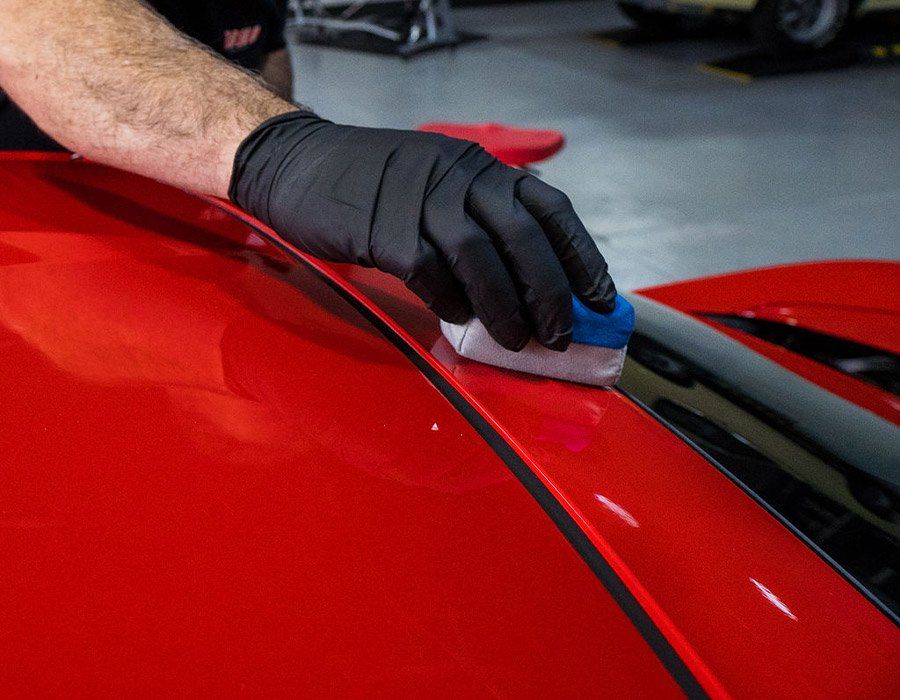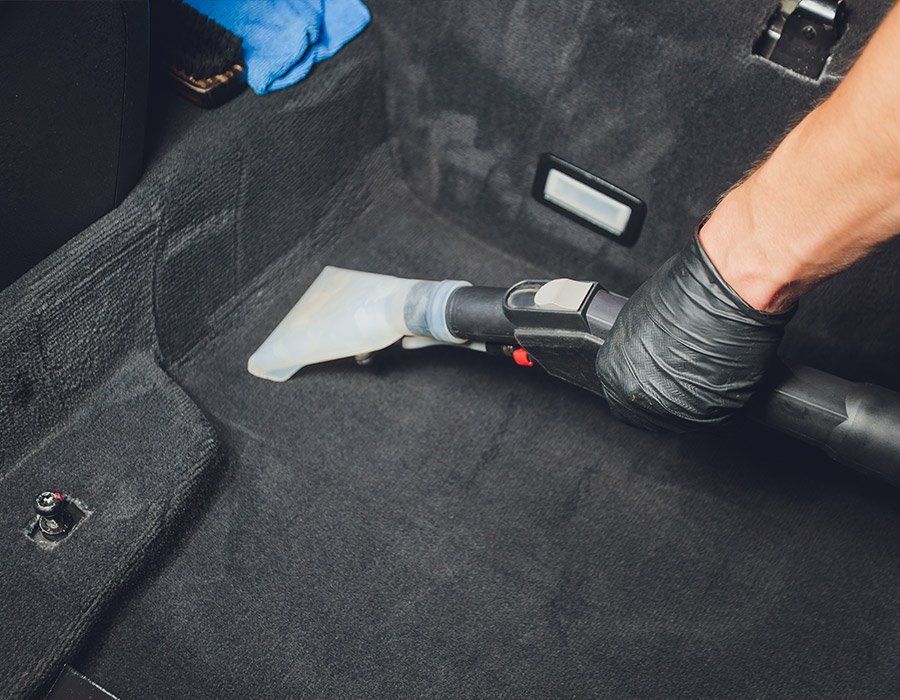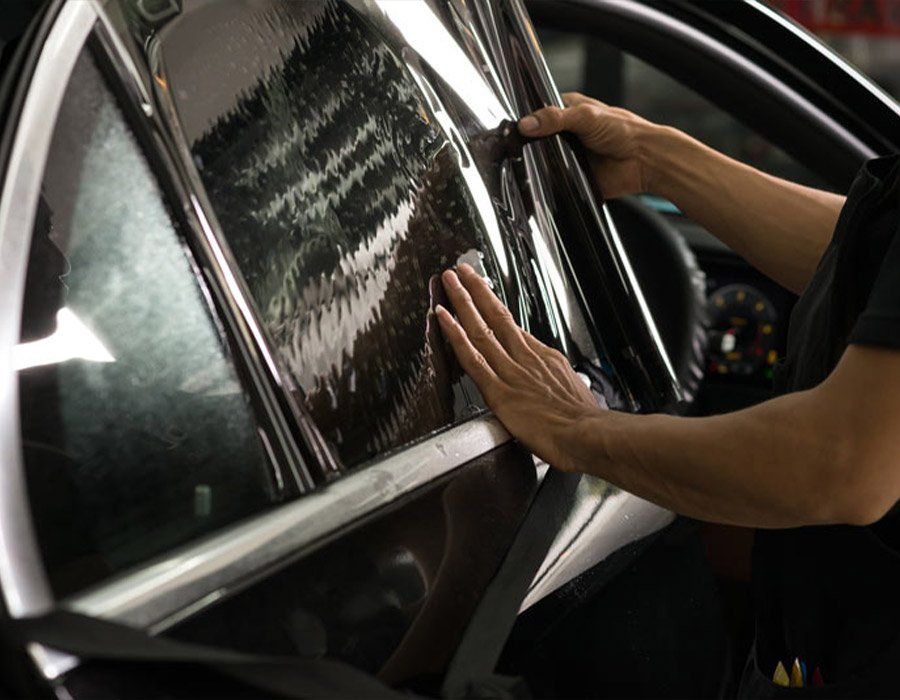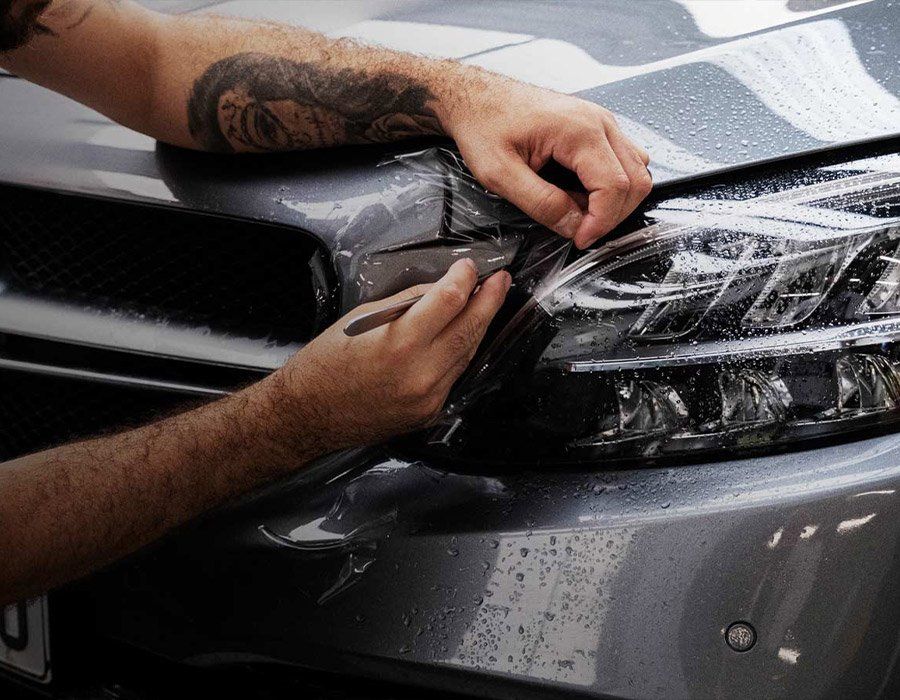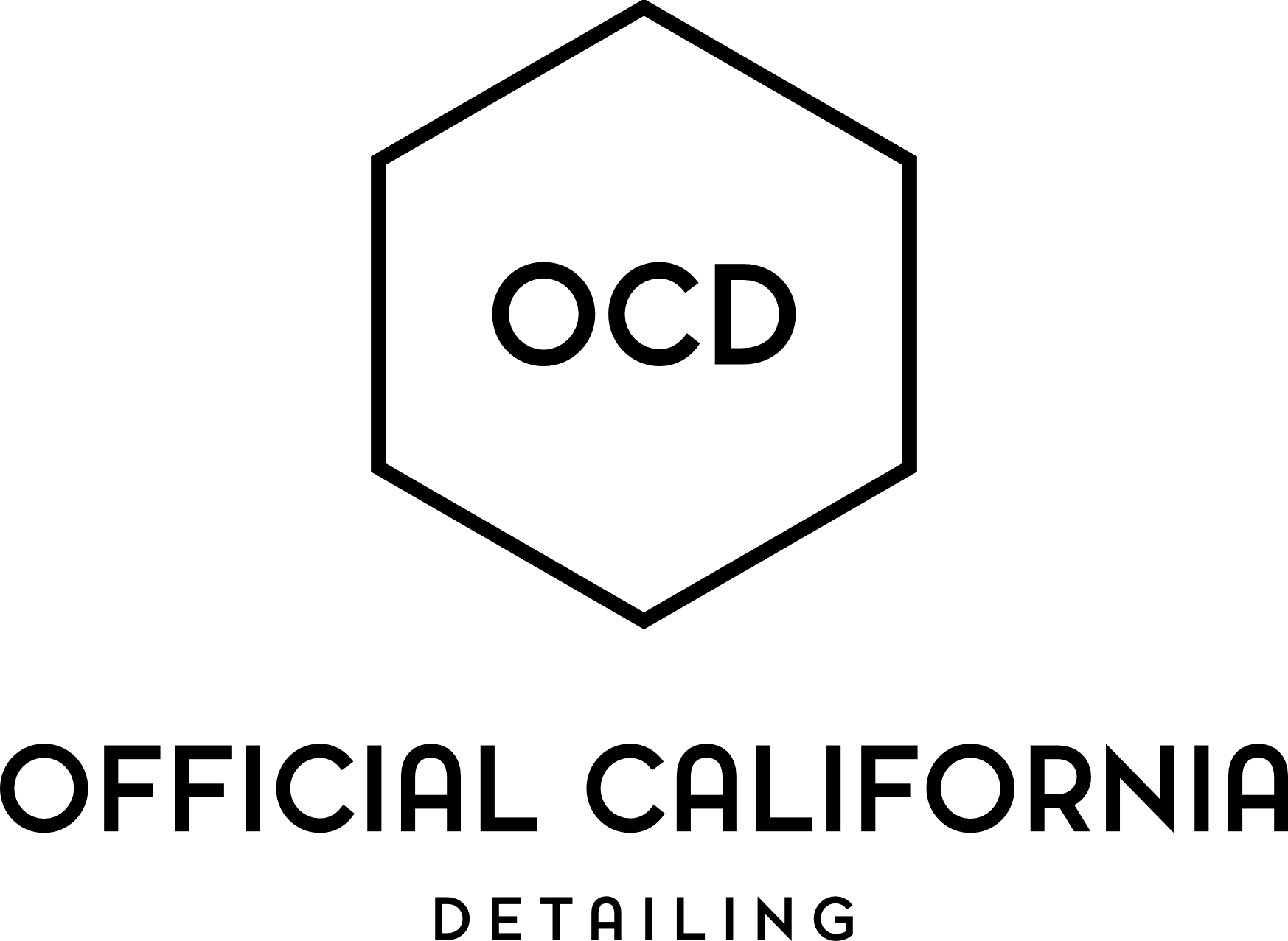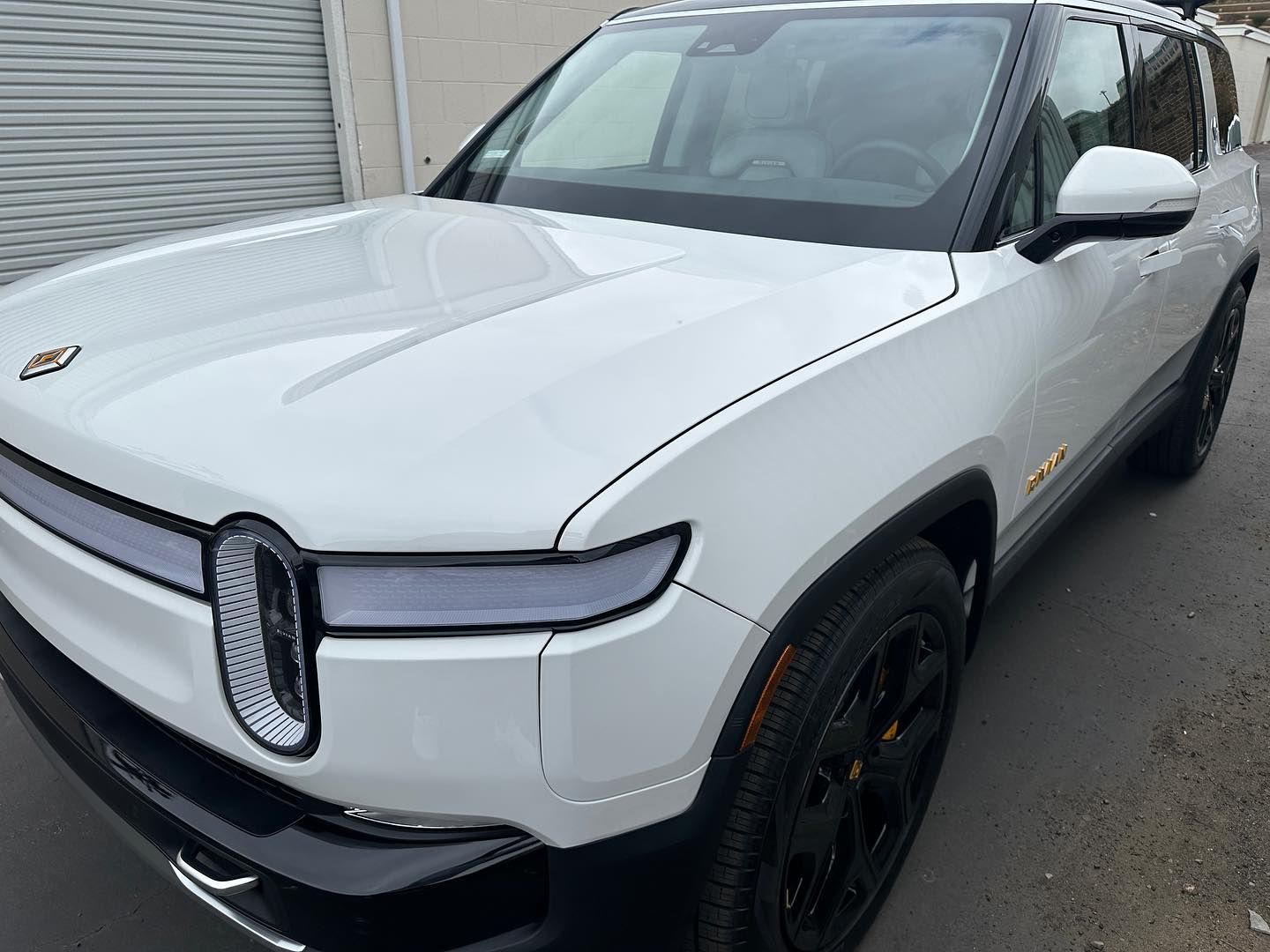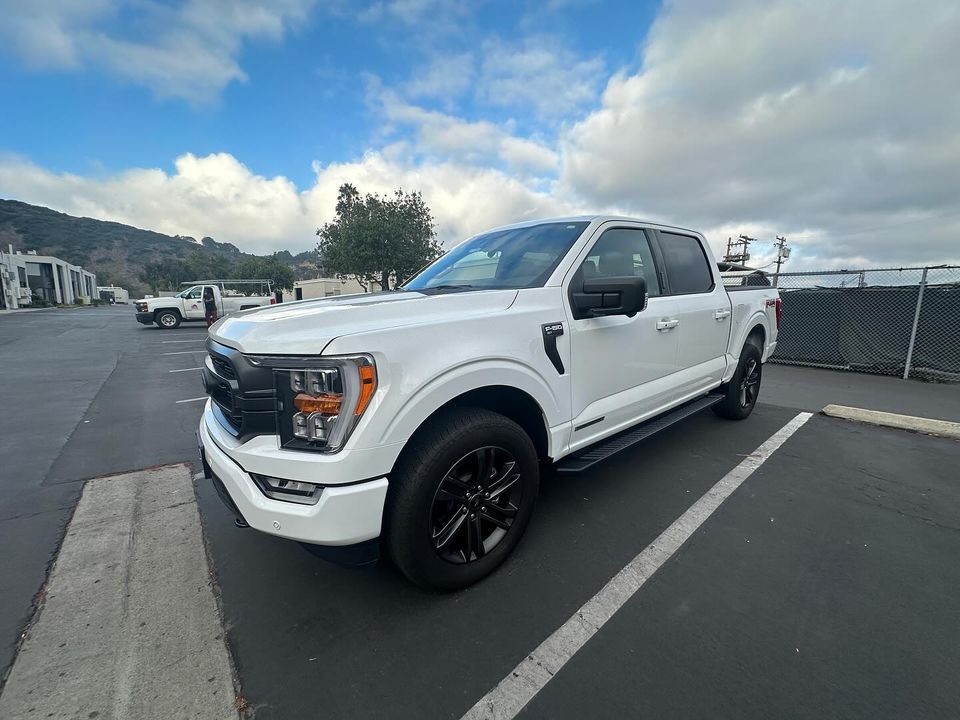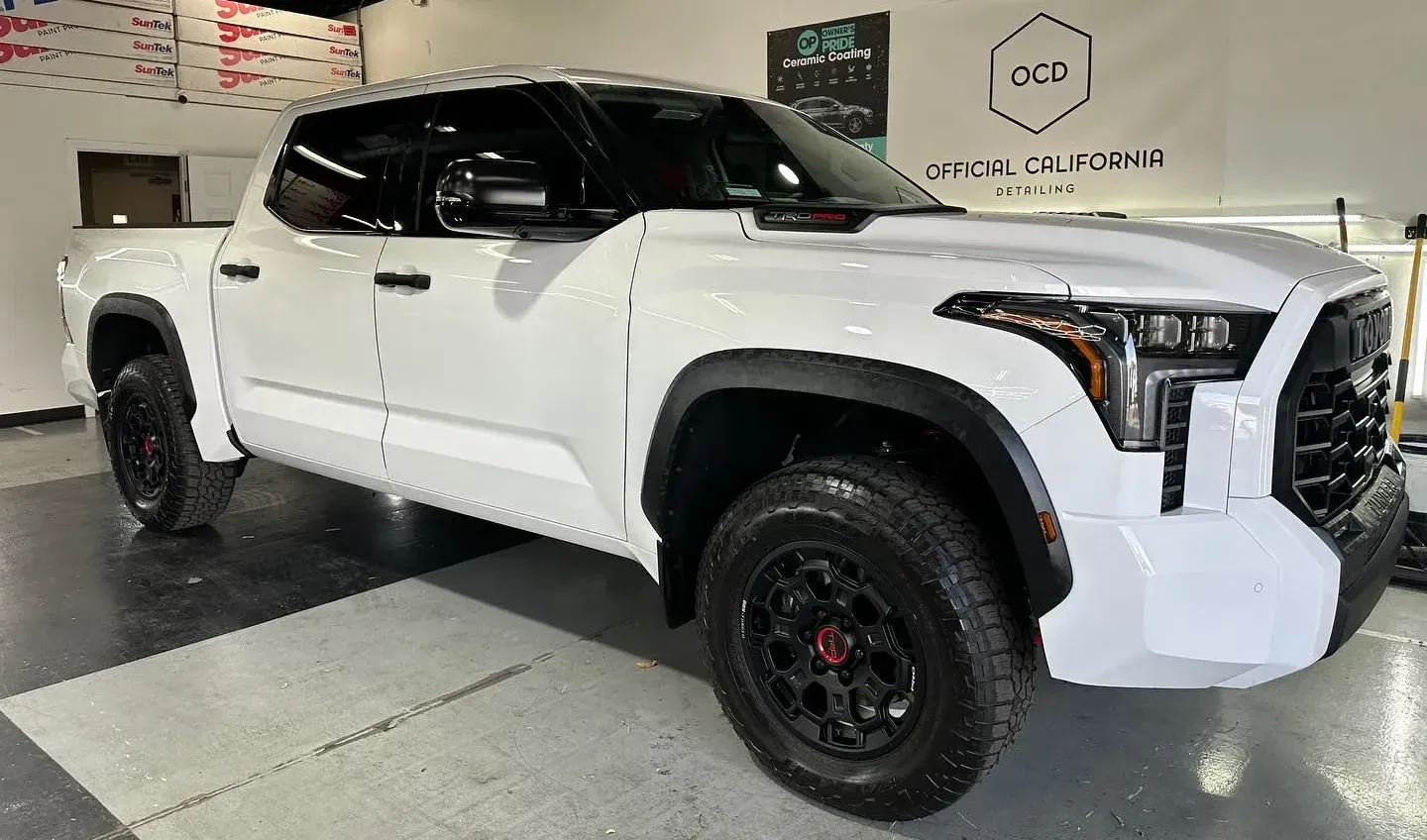Official California Detailing Blog
Understanding Window Tinting Technologies: A Deep Dive Into Your Options
(619) 760-4962 GET A QUOTE NOWWindow tinting has evolved far beyond simply darkening your vehicle's glass for an improved look. Today’s advancements in window tinting technologies offer diverse benefits—from extraordinary UV protection to boosting energy efficiency—all while maintaining clear visibility for safe driving. For anyone keen on automotive customization or seeking an upgrade that provides both aesthetic and functional perks, understanding what sets each technology apart is vital.
There are several
window tinting technologies available, including dyed tints, metalized films, and carbon films. Dyed tints provide privacy and glare reduction at a more affordable price, metalized films enhance shatter resistance and reduce heat transmission, while carbon films offer the highest heat rejection and UV protection without interfering with electronic devices.
Overview of Window Tinting Technologies
When it comes to choosing the right window tinting, getting familiar with the various technologies is crucial. Each type of window film offers distinct advantages that cater to different preferences regarding heat reduction, privacy, aesthetics, and electronic usage. Let’s explore these options in more detail.
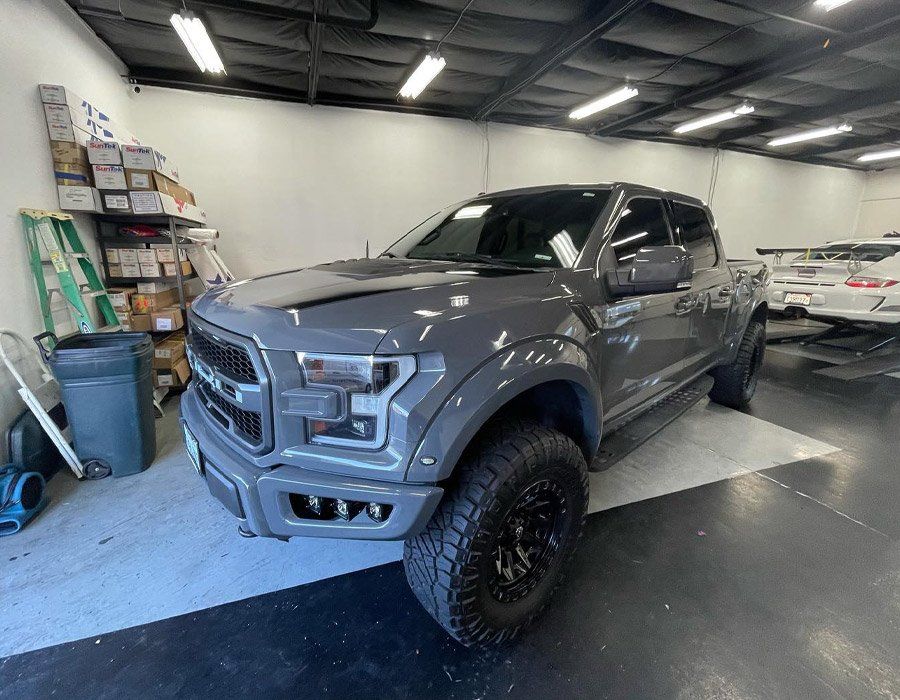
Types of Tinting Technologies
When selecting window tinting for your vehicle, it's essential to understand all of the available technologies. Each type of film provides different benefits ranging from basic heat reduction to advanced protection from UV rays, impacting privacy, comfort, aesthetics, affordability, and performance in various ways. Understanding the features of different films will allow you to make an informed choice that meets both budgetary constraints and premium performance needs.
Dyed Film: This represents the most basic level of window tinting. The dyed film incorporates a layer of dye that absorbs sunlight, reducing glare and consequently improving comfort inside your vehicle or home. While this option is often the most affordable and accessible, its ability to block harmful ultraviolet (UV) rays is notably limited when compared to more advanced technologies. This means while you may save money upfront, you could end up paying later for potential sun damage to interiors or skin.
Metallized Film: Metallized film incorporates tiny particles of metal within the film. This not only enhances its ability to reflect heat but also substantially improves UV protection. One significant drawback, however, is its tendency to interfere with cell phone and GPS signals. Because many of us rely heavily on our devices during daily activities or trips, this could be a dealbreaker for some people. It's worth noting that this type is often favored in commercial buildings where energy savings are prioritized over electronic signal clarity.
Hybrid Film: For those seeking balance, hybrid films combine both dyed and metalized layers. This technology offers a middle ground, providing adequate heat reduction and UV protection while maintaining better signal clarity than pure metalized films. This versatility makes hybrid options appealing to homeowners and car owners who want effective shading without sacrificing connectivity.
Carbon Tint: Carbon window tinting offers an innovative solution that excels both visually and functionally. Unlike dyed or metalized films, carbon tint does not rely on dyes or metals, which could fade over time or interfere with electronic signals. Instead, carbon particles are utilized to block up to 99% of harmful UV rays while significantly decreasing heat within your vehicle. Not only does this type of tint provide long-term protection, but it also comes with a sleek matte finish that won't fade with time. Carbon tint offers several other advantages as well. First and foremost, its installation won't interfere with signal transmission, making it ideal for users who rely on their devices. Plus, carbon tint is long-lasting, providing long-term benefits without compromising aesthetics or performance.
Crystalline Tint: For maximum performance, look no further than Crystalline window tinting film. Using multi-layer optical film technology, this innovative window tint blocks up to 99.9% of UV rays while at the same time rejecting heat while still permitting visible light into the vehicle. The crystalline film offers unmatched comfort without darkening windows substantially, making it the ideal solution for those seeking maximum protection while maintaining clear views. Carbon tint offers superior heat rejection, helping keep interior temperatures under intense sunlight comfortable and pleasant. Like carbon tint, it also avoids signal interference and has incredible durability, giving lasting performance without the drawbacks associated with older tinting technologies.
Carbon and crystalline films stand out as top choices when it comes to long-lasting durability, heat reduction, or maintaining clear electronic signals, making them great choices.
Comparing Reflective and Non-Reflective Films
The primary distinction between reflective and non-reflective films lies in their functionality and effectiveness. Reflective films, often laced with metallic particles, excel at bouncing sunlight away from surfaces. This property reduces glare and helps lower interior temperatures, resulting in energy savings particularly appreciated in hotter climates. Their effectiveness in heat rejection makes them popular for commercial buildings where cooling costs are high, keeping workspaces comfortable while lessening reliance on air conditioning systems.
However, while reflective films offer these benefits, they do come with a notable downside: interference with electronic signals. Many users have reported challenges regarding cell phone reception or radio signals when using these films. This interference occurs because the metals used in the film can obstruct signals, which is something to contemplate before choosing this option for your home or vehicle.
On the other hand, non-reflective films absorb sunlight rather than reflecting it. Typically made from dyed or ceramic materials, these films provide consistent solar performance without impacting signal quality. Imagine driving your car around town, enjoying your favorite playlist without interruptions because the tint on your windows allows for seamless radio reception. This characteristic makes non-reflective films widely preferred for automotive applications.
When weighing options like energy efficiency against signal clarity, understanding your unique needs will guide your choices.
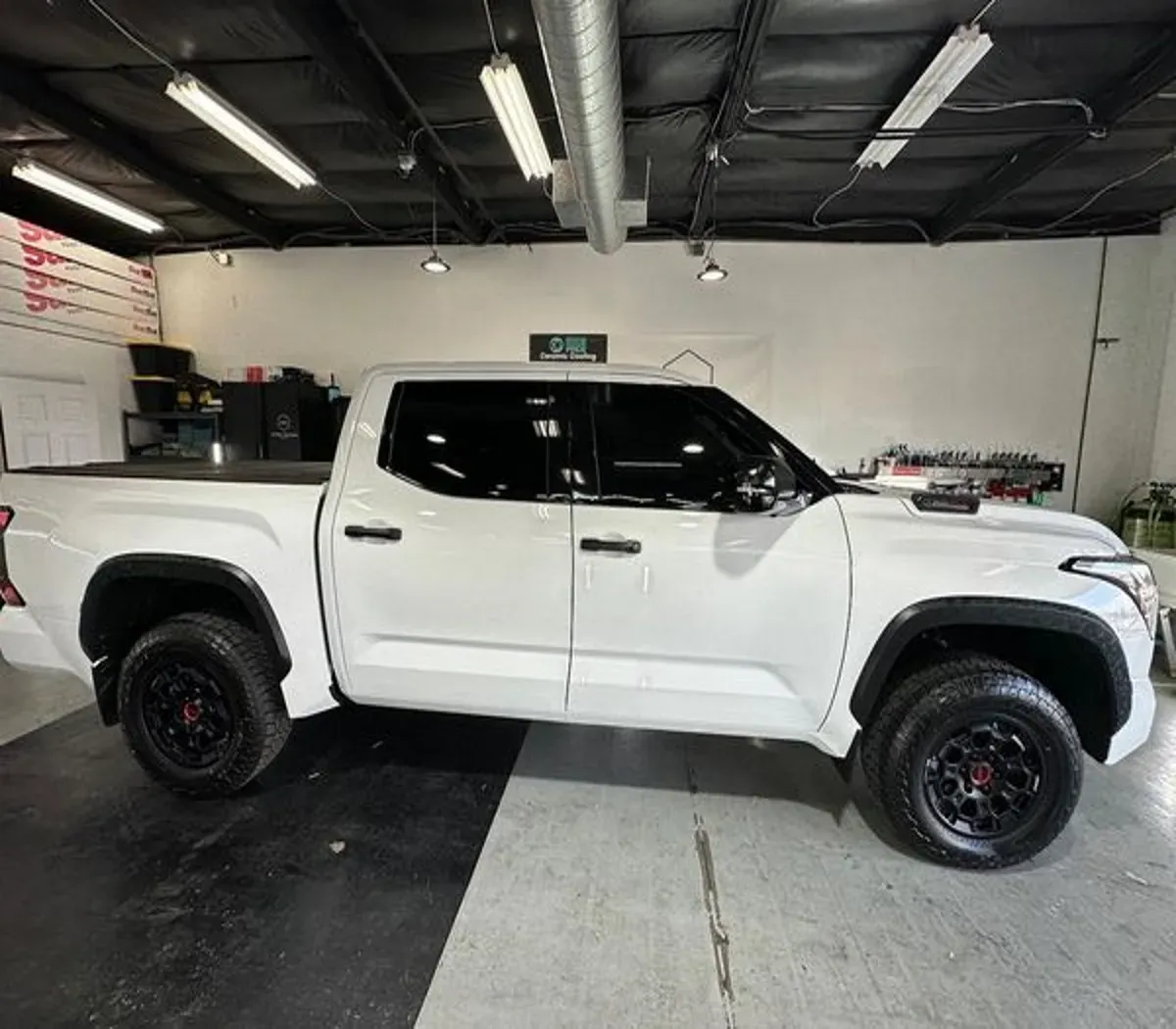
Solar Control: Heat and UV Blocking Films
Solar control films are engineered to tackle the relentless heat generated by the sun and shield against harmful ultraviolet rays. These films play a crucial role in maintaining a comfortable temperature inside your vehicle while protecting your investment from the effects of prolonged sun exposure. The statistics are impressive—a high-quality solar control film can block up to 99% of UV rays and decrease interior heat by up to 60%.
Benefits of Solar Control Films
One significant advantage of employing solar control films is the extensive protection they provide for your vehicle’s interior. Without this protective barrier, seats, dashboards, and other interior materials can fade, crack, or deteriorate over time due to UV radiation. Such damage not only diminishes the aesthetic appeal of your car but can also affect its resale value. Keeping your vehicle looking new for longer is a priority for many owners, and solar control films achieve this by acting as a shield against harmful rays.
Another key benefit is comfort. On hot days, entering a vehicle that has been parked in direct sunlight can be unbearable. Solar control films mitigate this discomfort by reflecting heat away from the glass, ensuring a cooler environment inside before even activating the air conditioning.
The health implications are equally noteworthy—solar control films are not just a luxury; they serve as a preventative measure against skin conditions related to UV exposure. A study conducted by the Skin Cancer Foundation verified that car window tinting effectively reduces UV exposure, significantly lowering the risk of developing skin cancer for those frequently traveling in their vehicles. Every trip can expose you to harmful rays, making this protective technology essential for anyone who spends significant time on the road.
While understanding solar control is vital for enhancing comfort and safety in your vehicle, it’s equally important to factor in additional elements like security and privacy that can influence your choice when selecting window tint.
Enhancing Security and Privacy with Tinting
One of the most significant aspects of window tinting is its ability to bolster security. A window is essentially an invitation for unwanted attention. High-quality tint films act as a protective barrier that not only obstructs visibility but can also deter potential intruders.
Security Benefits of Window Tinting
Security films provide more than aesthetic appeal; they are engineered to be thicker than standard films. This shatter-resistant technology keeps broken glass together upon impact, making it exceedingly challenging for burglars to enter through your windows.
Additionally, it's not just about keeping intruders out. The shatter-resistant properties of these films add an extra layer of protection during natural disasters such as hurricanes or tornadoes, where glass shattering can lead to serious injury. These films hold the glass together, thus minimizing risks.
Privacy Enhancement
Moving beyond security, let's talk about privacy. High-quality tints can obscure the view into your vehicle or property while allowing you to see outside without obstruction. This balance makes window tinting an ideal choice for individuals who value their privacy—particularly in crowded neighborhoods or busy streets.
For instance, if you are a high-profile individual or running a business that houses sensitive information, this level of discretion can be invaluable.
While security and privacy are significant advantages, advancements in technology are creating exciting new options that further enhance performance and aesthetics in window tinting. Let's explore these cutting-edge developments next.
Key Considerations for Choosing Car Tints
When it comes to choosing window tint for your vehicle, it’s not simply about color or aesthetics. There are several factors that can significantly influence your decision.
Legal restrictions are among the first things you must check. Each state has unique regulations that specify what level of tint is permissible. For example, some states might allow darker tints in certain sections of the car while prohibiting them in others. Ignoring these laws could lead to unpleasant fines and the hassle of removing illegal tint afterward.
Next, consider your climate. Different tints perform variably under different weather conditions. For those living in hot areas, opting for higher heat rejection films becomes beneficial as they help maintain internal comfort by reducing heat buildup in the vehicle. On the contrary, if you reside in a cooler region, you may prefer a tint that balances heat rejection with ensuring adequate warmth on chilly days.
Budget is another critical factor; while there are plenty of inexpensive options on the market, investing in quality window tints can provide superior durability and performance over time. Cheaper films might fade quickly or lose their effectiveness after only a few months — potentially leading to frustration when replacements become necessary. A high-quality tint not only enhances your vehicle's look but also protects it against environmental elements.
Professional installation should be high on your priority list. The effectiveness of window film relies heavily on correct installation techniques. Opting for professional services typically leads to better overall results—eliminating bubbles and ensuring edges are sealed properly, which are common pitfalls of DIY jobs.
Keep these key factors in mind as you navigate your options; understanding each aspect will empower you to make informed choices about your car’s window tinting needs. Whether you prioritize aesthetics, performance, or compliance, there’s a perfect tint waiting for you.
To explore high-quality window tinting services tailored to your needs, contact us at Official California Detailing or call (619) 760-4962 today!
